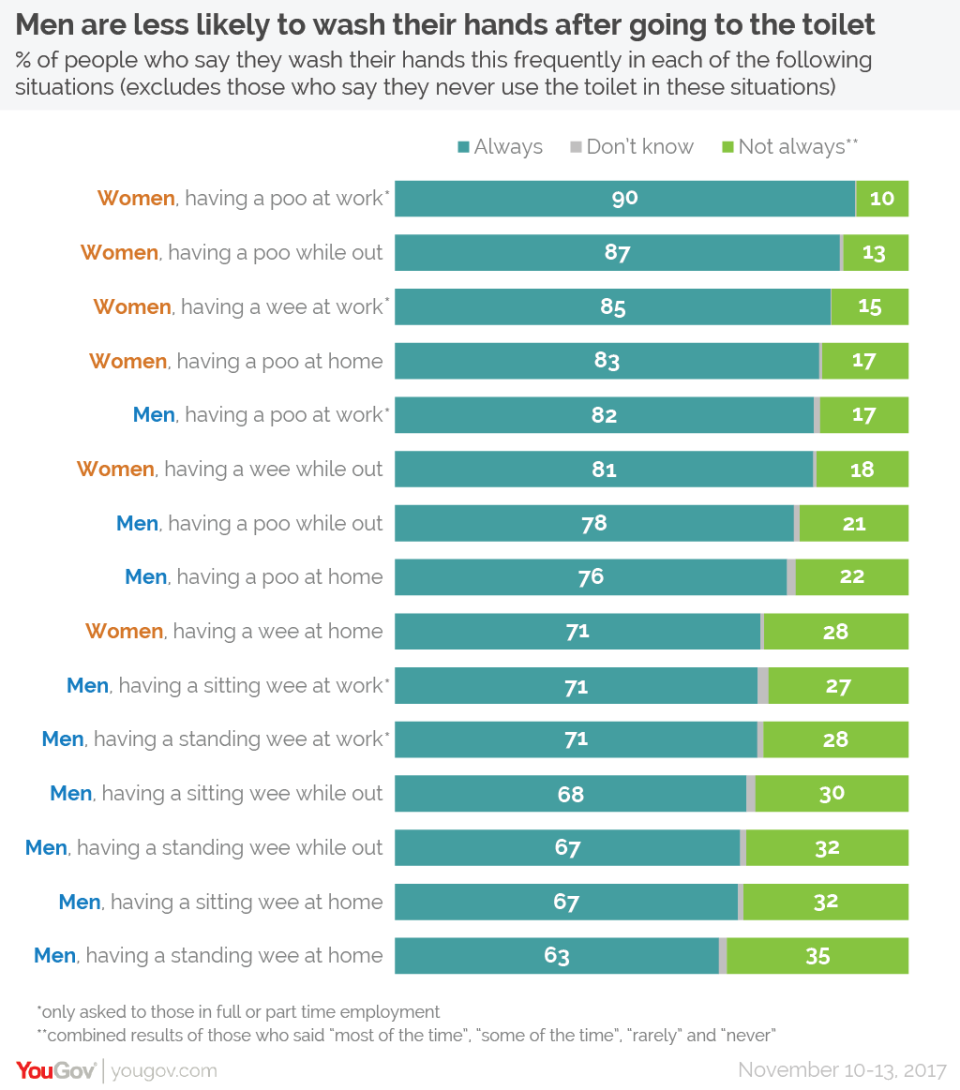Coronavirus: How bad are Brits at washing their hands (particularly men)?

As concerns continue to grow over the spread of coronavirus, one of the government’s key pieces of advice is on handwashing.
The government has launched a public information campaign aimed at driving home the message that regular hand-washing is the single most important action individuals can take in the fight against Covid-19.
And well they might, judging by the results of a poll that shines an uncomfortable light on the hygiene habits of the UK population - particularly men and their bathroom behaviour.
According to a YouGov survey in late 2017, “significant minorities” of people don’t always wash their hands after going to the toilet.
The poll put a range of scenarios to respondents, asking how frequently they washed their hands after urinating or defecating at home, at work and while out and about.
It found that while the majority of Brits said they always wash their hands in each of the scenarios, even in the setting where they were most likely to wash their hands (female workers, after having a poo at work), one in ten (10%) were still not always washing their hands afterwards.

At the other end of the scale, the scenario in which people were most likely to admit they don’t always wash their hands is when men have a ‘standing wee at home’, at 35%.
It found that men were less likely than women to wash their hands in all scenarios, the poll revealed, though the biggest difference between men and women was over having a wee while out and about.
In that scenario, nearly one in five (18%) women said they don’t always wash their hands, compared to nearly a third (30-32%) of men - depending on whether they are sitting or standing.
Have we changed their habits since the outbreak?
The public information campaign comes as a recent poll suggested that half of Britons had taken no measures to protect themselves from coronavirus.
The poll found that despite daily headlines, 54% of Brits said they were not taking any extra steps to protect themselves while just 35% of people asked said they had taken steps in recent weeks.
Isn't this what you should normally do? Why is it so unusual to wash your hands?
— Elle (@Peppapig54321) March 4, 2020
For some people, it seems obvious that hand washing should be an important part of general hygiene, with some members of the Twitterati expressing their concern that some people are only just learning how to wash their hands.
Read more: Six handwashing mistakes that help coronavirus spread
Read more: Coronavirus: how to wash your hands to ward off infection
While hand-washing is important for all general hygiene, the figures could be even more telling in the light of suggestions that coronavirus could spread in a patient’s urine or faeces.
A report from the World Health Organisation (WHO) found that “viral shedding” had occurred in human waste, with China’s National Health Commission going on to confirm traces of the virus in patients’ stool samples.
However, many experts have also stressed that human waste is unlikely the main method of transmission.

 Yahoo News
Yahoo News 
